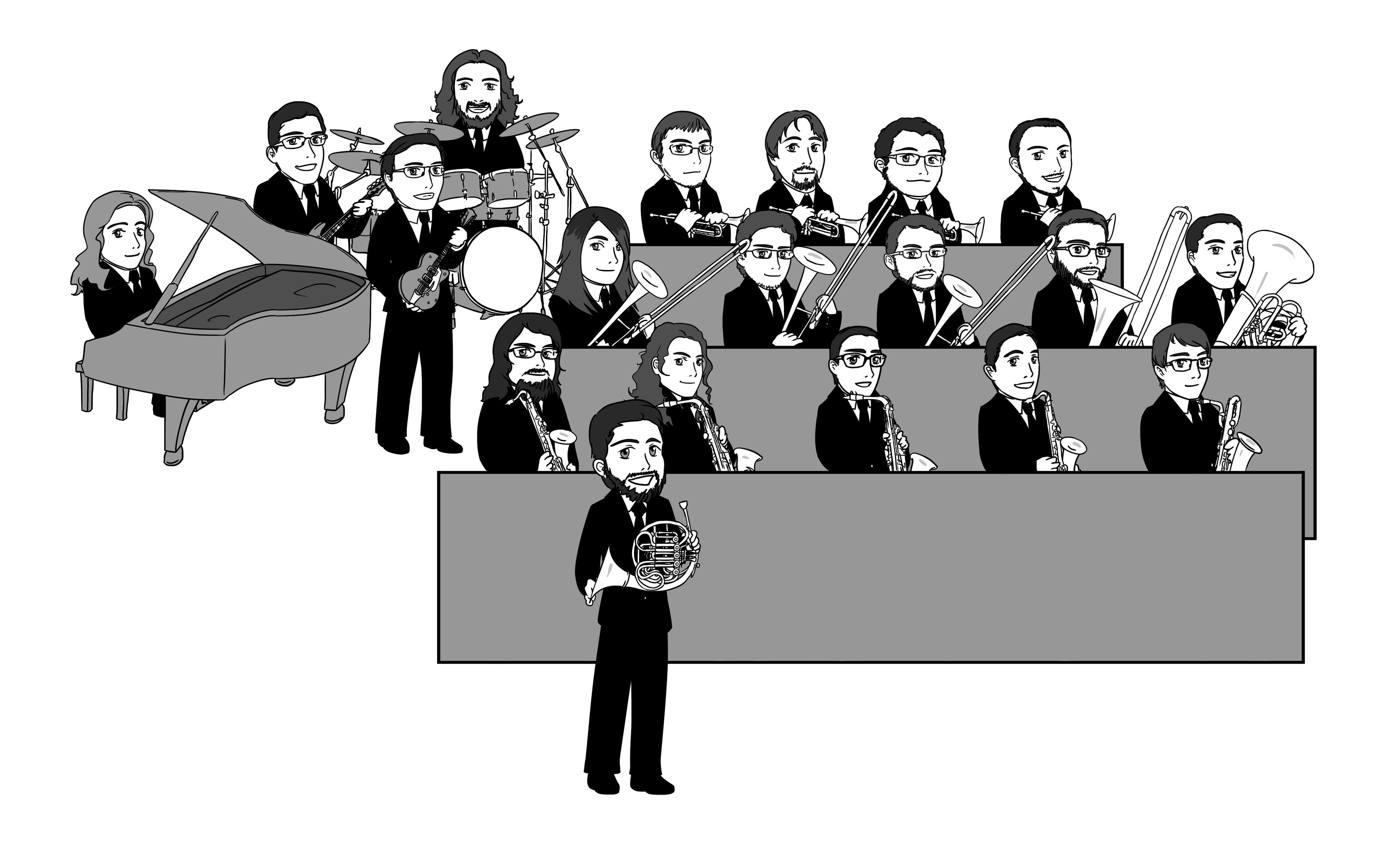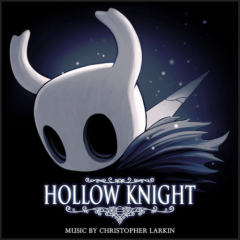-
Posts
195 -
Joined
-
Last visited
-
Days Won
13
Reputation Activity
-
 JohnStacy reacted to DarkeSword in Having Trouble with FLStudio
JohnStacy reacted to DarkeSword in Having Trouble with FLStudio
Hey, don't do this. Don't call out other replies as "patronizing." Give your advice without the snide commentary.
-
 JohnStacy got a reaction from Eino Keskitalo in An intense bit of nostalgia in my musical life
JohnStacy got a reaction from Eino Keskitalo in An intense bit of nostalgia in my musical life
So I recently figured out that since I have a windows computer, I can get Anvil Studio again.
I pride myself in my ability to sight read. I can very successfully read most things handed to me. This is where it started. I would read thousands of midi files of different types of music and had so much fun reading until my face wore out.
Today, in my excitement, I grabbed a backup horn from the office, a mouthpiece I don't normally play on, and just wanted to share this excitement with the world.
-
 JohnStacy got a reaction from Light_of_Aether in I want a Jet Force Gemini OST's orchestral performance to happen
JohnStacy got a reaction from Light_of_Aether in I want a Jet Force Gemini OST's orchestral performance to happen
So a live performance is unlikely to happen. Maybe if you contacted the Game Music Ensemble at UCLA or the Gamer Symphonies in New England it could, but otherwise unlikely.
BUT
If a fan orchestral album does happen, I would gladly provide brass recording for that. I have worked with quite a few people in the VGM community doing orchestral brass sections. I think a project like this would be fun to record. I am an experienced orchestral brass musician, and this kind of thing is right up my alley.
-
 JohnStacy got a reaction from Ikari_Gendou in I want a Jet Force Gemini OST's orchestral performance to happen
JohnStacy got a reaction from Ikari_Gendou in I want a Jet Force Gemini OST's orchestral performance to happen
So a live performance is unlikely to happen. Maybe if you contacted the Game Music Ensemble at UCLA or the Gamer Symphonies in New England it could, but otherwise unlikely.
BUT
If a fan orchestral album does happen, I would gladly provide brass recording for that. I have worked with quite a few people in the VGM community doing orchestral brass sections. I think a project like this would be fun to record. I am an experienced orchestral brass musician, and this kind of thing is right up my alley.
-
 JohnStacy got a reaction from Sixto in Inspirational OC ReMixers. Ego food donations.
JohnStacy got a reaction from Sixto in Inspirational OC ReMixers. Ego food donations.
Neblix, Bustatunez, Detective Tuesday and Sixto were the main ones that I became friends with and talked to a lot.
Wiesty was the one who welcomed me into the OC Jazz collective which made me examine my arranging style more closely.
There are plenty more, those were just the ones I interacted with the most when I became active in 2016. Although far from a musical newbie (I had already finished a music composition degree and was working toward a career as a session horn player), I was a newbie to this scene.
-
 JohnStacy got a reaction from Bowlerhat in I'm not that great at doing transitions between melodic ideas. and I'm having trouble making songs fit together
JohnStacy got a reaction from Bowlerhat in I'm not that great at doing transitions between melodic ideas. and I'm having trouble making songs fit together
Take elements of the things you are transitioning to and from and mix them together.
If you're transitioning from something that is slow and legato to something that is a little faster and more detached, start altering some of the things near the end of the slow section to be more detached, so that the style change doesn't seem to come out of nowhere.
Take themes from the later sections and introduce them as secondary themes in the current section.
Essentially, it's just a matter of introducing stuff in little bits before you get there so that it doesn't seem like you suddenly arrived out of nowhere.
-
 JohnStacy got a reaction from Jorito in I'm not that great at doing transitions between melodic ideas. and I'm having trouble making songs fit together
JohnStacy got a reaction from Jorito in I'm not that great at doing transitions between melodic ideas. and I'm having trouble making songs fit together
Take elements of the things you are transitioning to and from and mix them together.
If you're transitioning from something that is slow and legato to something that is a little faster and more detached, start altering some of the things near the end of the slow section to be more detached, so that the style change doesn't seem to come out of nowhere.
Take themes from the later sections and introduce them as secondary themes in the current section.
Essentially, it's just a matter of introducing stuff in little bits before you get there so that it doesn't seem like you suddenly arrived out of nowhere.
-
 JohnStacy got a reaction from timaeus222 in I'm not that great at doing transitions between melodic ideas. and I'm having trouble making songs fit together
JohnStacy got a reaction from timaeus222 in I'm not that great at doing transitions between melodic ideas. and I'm having trouble making songs fit together
Take elements of the things you are transitioning to and from and mix them together.
If you're transitioning from something that is slow and legato to something that is a little faster and more detached, start altering some of the things near the end of the slow section to be more detached, so that the style change doesn't seem to come out of nowhere.
Take themes from the later sections and introduce them as secondary themes in the current section.
Essentially, it's just a matter of introducing stuff in little bits before you get there so that it doesn't seem like you suddenly arrived out of nowhere.
-
 JohnStacy got a reaction from Ridiculously Garrett in Original silent movie style score to Ocarina of Time Speed Run
JohnStacy got a reaction from Ridiculously Garrett in Original silent movie style score to Ocarina of Time Speed Run
Here is more or less the final version. Recording/production should start before too long. I sent out parts to some people for proofreading/suggestions. Rhythm section parts are finished minus minor notation edits.
-
 JohnStacy got a reaction from Nabeel Ansari in Do You Still ReMix — Why Or Why Not?
JohnStacy got a reaction from Nabeel Ansari in Do You Still ReMix — Why Or Why Not?
My last thought, which I'm giving, leaving, and not coming back to:
One of my remixes is so far removed from the original that if you take away the original melody, because of the altered harmony and counterpoint, it sounds like a completely different piece. I've actually performed said remix without the original melody as an original composition for a graduate composition recital. An analysis of it shows that without the melody, the style, harmony, and counterpoint are so far removed from the original that it can classify as a completely different piece no matter how you look at it. I mean like...it's now less than 10% the speed of the original, the melody was almost completely reharmonized. The harmony doesn't even classify as tonal anymore at this point. It has a loose key center, so it's key centric, but the function of the chords don't exist in a traditionally tonal sense. If you speed it up 10x, then the groups of measures together suggest a tonal progression, but the actual phrases in the piece are not tonal. Basically I wrote a contrafact of the Underwater theme from Super Mario Bros.
I'm a jazz musician, so the idea of taking several tunes with the exact same content and changing the melody is normal. The concept of contrafact is kind of a center point of the genre. Sometimes when people write a tune, the original writers fade into obscurity while the performers of said piece get credited. Donna Lee is credited to Miles Davis, but that is heavily debated. It is a contrafact of the tune Indiana, and is practiced as such. The chord changes to I Got Rhythm are so iconic that we just basically call them rhythm changes. There is no effort at all to hide the fact that it's basically the exact content of the song minus the melody. There are other times where tunes are arranged in DRASTICALLY different styles and although they are the original song, they contributed to the development of the genre, or in some cases multiple genres in a significant way. Many musicians do arrangements literally all the time to develop their compositional and arrangement technique. More times than not, doing an arrangement of a VG tune in the style of a composer helps me learn more about the writing of that composer than if I were writing an original tune in that style. It takes less time, so I can get more out of it really quickly.
Brahms wrote Theme and Variations on a Theme by Haydn. But Brahms is credited as the composer, not the arranger. In the classical canon, having a theme and variations form virtually always results in a new piece, even though the melodic content was written by somebody else. Brahms, Mozart, Beethoven, and Strauss are some of the major composers in the classical canon, and they all wrote theme and variations on the themes of somebody else, yet are credited as the composers. Theme and Variations on a Theme by Haydn was basically a remix of a piece by Haydn. But Brahms is credited as composer.
I mean if by added some seasoning you mean I dumped so many seasonings to it that it's basically a mountain of rainbow powder with no liquid left, then yes. I just added some seasoning of my own. That is a simplification of what goes on and you know it, so please drop the condescending attitude toward the matter, thank you very much.
And please for the love of God don't do the thing where you quote each individual sentence of this post and make me defend it line by line, because I have better things to do with my time. People get tired of that REALLY quickly, because more times than not, you simplify what they said in your response, which just adds fuel to the fire rather than continuing the discussion. People waste so much more time correcting your simplifications than actually continuing the discussion because you "don't give a shit."
-
 JohnStacy got a reaction from RealFolkBlues in Zelda OoT has still the infamous chanting
JohnStacy got a reaction from RealFolkBlues in Zelda OoT has still the infamous chanting
I thought I dreamed the chanting at first. The neighbor girls had the game in a 1.0 cart, and we went through the game together, but didn't make it all the way through. I got a 1.2 cart later on when I got an n64 for Christmas and entered the fire temple again on my own, and thought something was missing, but just thought I dreamed the chanting.
Through the power of the internet, you can find out that you weren't dreaming.
Magic Technology from the future!
-
 JohnStacy got a reaction from LuckyXIII in Do You Still ReMix — Why Or Why Not?
JohnStacy got a reaction from LuckyXIII in Do You Still ReMix — Why Or Why Not?
My last thought, which I'm giving, leaving, and not coming back to:
One of my remixes is so far removed from the original that if you take away the original melody, because of the altered harmony and counterpoint, it sounds like a completely different piece. I've actually performed said remix without the original melody as an original composition for a graduate composition recital. An analysis of it shows that without the melody, the style, harmony, and counterpoint are so far removed from the original that it can classify as a completely different piece no matter how you look at it. I mean like...it's now less than 10% the speed of the original, the melody was almost completely reharmonized. The harmony doesn't even classify as tonal anymore at this point. It has a loose key center, so it's key centric, but the function of the chords don't exist in a traditionally tonal sense. If you speed it up 10x, then the groups of measures together suggest a tonal progression, but the actual phrases in the piece are not tonal. Basically I wrote a contrafact of the Underwater theme from Super Mario Bros.
I'm a jazz musician, so the idea of taking several tunes with the exact same content and changing the melody is normal. The concept of contrafact is kind of a center point of the genre. Sometimes when people write a tune, the original writers fade into obscurity while the performers of said piece get credited. Donna Lee is credited to Miles Davis, but that is heavily debated. It is a contrafact of the tune Indiana, and is practiced as such. The chord changes to I Got Rhythm are so iconic that we just basically call them rhythm changes. There is no effort at all to hide the fact that it's basically the exact content of the song minus the melody. There are other times where tunes are arranged in DRASTICALLY different styles and although they are the original song, they contributed to the development of the genre, or in some cases multiple genres in a significant way. Many musicians do arrangements literally all the time to develop their compositional and arrangement technique. More times than not, doing an arrangement of a VG tune in the style of a composer helps me learn more about the writing of that composer than if I were writing an original tune in that style. It takes less time, so I can get more out of it really quickly.
Brahms wrote Theme and Variations on a Theme by Haydn. But Brahms is credited as the composer, not the arranger. In the classical canon, having a theme and variations form virtually always results in a new piece, even though the melodic content was written by somebody else. Brahms, Mozart, Beethoven, and Strauss are some of the major composers in the classical canon, and they all wrote theme and variations on the themes of somebody else, yet are credited as the composers. Theme and Variations on a Theme by Haydn was basically a remix of a piece by Haydn. But Brahms is credited as composer.
I mean if by added some seasoning you mean I dumped so many seasonings to it that it's basically a mountain of rainbow powder with no liquid left, then yes. I just added some seasoning of my own. That is a simplification of what goes on and you know it, so please drop the condescending attitude toward the matter, thank you very much.
And please for the love of God don't do the thing where you quote each individual sentence of this post and make me defend it line by line, because I have better things to do with my time. People get tired of that REALLY quickly, because more times than not, you simplify what they said in your response, which just adds fuel to the fire rather than continuing the discussion. People waste so much more time correcting your simplifications than actually continuing the discussion because you "don't give a shit."
-
 JohnStacy got a reaction from DarkeSword in Do You Still ReMix — Why Or Why Not?
JohnStacy got a reaction from DarkeSword in Do You Still ReMix — Why Or Why Not?
My last thought, which I'm giving, leaving, and not coming back to:
One of my remixes is so far removed from the original that if you take away the original melody, because of the altered harmony and counterpoint, it sounds like a completely different piece. I've actually performed said remix without the original melody as an original composition for a graduate composition recital. An analysis of it shows that without the melody, the style, harmony, and counterpoint are so far removed from the original that it can classify as a completely different piece no matter how you look at it. I mean like...it's now less than 10% the speed of the original, the melody was almost completely reharmonized. The harmony doesn't even classify as tonal anymore at this point. It has a loose key center, so it's key centric, but the function of the chords don't exist in a traditionally tonal sense. If you speed it up 10x, then the groups of measures together suggest a tonal progression, but the actual phrases in the piece are not tonal. Basically I wrote a contrafact of the Underwater theme from Super Mario Bros.
I'm a jazz musician, so the idea of taking several tunes with the exact same content and changing the melody is normal. The concept of contrafact is kind of a center point of the genre. Sometimes when people write a tune, the original writers fade into obscurity while the performers of said piece get credited. Donna Lee is credited to Miles Davis, but that is heavily debated. It is a contrafact of the tune Indiana, and is practiced as such. The chord changes to I Got Rhythm are so iconic that we just basically call them rhythm changes. There is no effort at all to hide the fact that it's basically the exact content of the song minus the melody. There are other times where tunes are arranged in DRASTICALLY different styles and although they are the original song, they contributed to the development of the genre, or in some cases multiple genres in a significant way. Many musicians do arrangements literally all the time to develop their compositional and arrangement technique. More times than not, doing an arrangement of a VG tune in the style of a composer helps me learn more about the writing of that composer than if I were writing an original tune in that style. It takes less time, so I can get more out of it really quickly.
Brahms wrote Theme and Variations on a Theme by Haydn. But Brahms is credited as the composer, not the arranger. In the classical canon, having a theme and variations form virtually always results in a new piece, even though the melodic content was written by somebody else. Brahms, Mozart, Beethoven, and Strauss are some of the major composers in the classical canon, and they all wrote theme and variations on the themes of somebody else, yet are credited as the composers. Theme and Variations on a Theme by Haydn was basically a remix of a piece by Haydn. But Brahms is credited as composer.
I mean if by added some seasoning you mean I dumped so many seasonings to it that it's basically a mountain of rainbow powder with no liquid left, then yes. I just added some seasoning of my own. That is a simplification of what goes on and you know it, so please drop the condescending attitude toward the matter, thank you very much.
And please for the love of God don't do the thing where you quote each individual sentence of this post and make me defend it line by line, because I have better things to do with my time. People get tired of that REALLY quickly, because more times than not, you simplify what they said in your response, which just adds fuel to the fire rather than continuing the discussion. People waste so much more time correcting your simplifications than actually continuing the discussion because you "don't give a shit."
-
 JohnStacy got a reaction from Garpocalypse in Do You Still ReMix — Why Or Why Not?
JohnStacy got a reaction from Garpocalypse in Do You Still ReMix — Why Or Why Not?
My last thought, which I'm giving, leaving, and not coming back to:
One of my remixes is so far removed from the original that if you take away the original melody, because of the altered harmony and counterpoint, it sounds like a completely different piece. I've actually performed said remix without the original melody as an original composition for a graduate composition recital. An analysis of it shows that without the melody, the style, harmony, and counterpoint are so far removed from the original that it can classify as a completely different piece no matter how you look at it. I mean like...it's now less than 10% the speed of the original, the melody was almost completely reharmonized. The harmony doesn't even classify as tonal anymore at this point. It has a loose key center, so it's key centric, but the function of the chords don't exist in a traditionally tonal sense. If you speed it up 10x, then the groups of measures together suggest a tonal progression, but the actual phrases in the piece are not tonal. Basically I wrote a contrafact of the Underwater theme from Super Mario Bros.
I'm a jazz musician, so the idea of taking several tunes with the exact same content and changing the melody is normal. The concept of contrafact is kind of a center point of the genre. Sometimes when people write a tune, the original writers fade into obscurity while the performers of said piece get credited. Donna Lee is credited to Miles Davis, but that is heavily debated. It is a contrafact of the tune Indiana, and is practiced as such. The chord changes to I Got Rhythm are so iconic that we just basically call them rhythm changes. There is no effort at all to hide the fact that it's basically the exact content of the song minus the melody. There are other times where tunes are arranged in DRASTICALLY different styles and although they are the original song, they contributed to the development of the genre, or in some cases multiple genres in a significant way. Many musicians do arrangements literally all the time to develop their compositional and arrangement technique. More times than not, doing an arrangement of a VG tune in the style of a composer helps me learn more about the writing of that composer than if I were writing an original tune in that style. It takes less time, so I can get more out of it really quickly.
Brahms wrote Theme and Variations on a Theme by Haydn. But Brahms is credited as the composer, not the arranger. In the classical canon, having a theme and variations form virtually always results in a new piece, even though the melodic content was written by somebody else. Brahms, Mozart, Beethoven, and Strauss are some of the major composers in the classical canon, and they all wrote theme and variations on the themes of somebody else, yet are credited as the composers. Theme and Variations on a Theme by Haydn was basically a remix of a piece by Haydn. But Brahms is credited as composer.
I mean if by added some seasoning you mean I dumped so many seasonings to it that it's basically a mountain of rainbow powder with no liquid left, then yes. I just added some seasoning of my own. That is a simplification of what goes on and you know it, so please drop the condescending attitude toward the matter, thank you very much.
And please for the love of God don't do the thing where you quote each individual sentence of this post and make me defend it line by line, because I have better things to do with my time. People get tired of that REALLY quickly, because more times than not, you simplify what they said in your response, which just adds fuel to the fire rather than continuing the discussion. People waste so much more time correcting your simplifications than actually continuing the discussion because you "don't give a shit."
-
 JohnStacy got a reaction from Pavos in Do You Still ReMix — Why Or Why Not?
JohnStacy got a reaction from Pavos in Do You Still ReMix — Why Or Why Not?
My last thought, which I'm giving, leaving, and not coming back to:
One of my remixes is so far removed from the original that if you take away the original melody, because of the altered harmony and counterpoint, it sounds like a completely different piece. I've actually performed said remix without the original melody as an original composition for a graduate composition recital. An analysis of it shows that without the melody, the style, harmony, and counterpoint are so far removed from the original that it can classify as a completely different piece no matter how you look at it. I mean like...it's now less than 10% the speed of the original, the melody was almost completely reharmonized. The harmony doesn't even classify as tonal anymore at this point. It has a loose key center, so it's key centric, but the function of the chords don't exist in a traditionally tonal sense. If you speed it up 10x, then the groups of measures together suggest a tonal progression, but the actual phrases in the piece are not tonal. Basically I wrote a contrafact of the Underwater theme from Super Mario Bros.
I'm a jazz musician, so the idea of taking several tunes with the exact same content and changing the melody is normal. The concept of contrafact is kind of a center point of the genre. Sometimes when people write a tune, the original writers fade into obscurity while the performers of said piece get credited. Donna Lee is credited to Miles Davis, but that is heavily debated. It is a contrafact of the tune Indiana, and is practiced as such. The chord changes to I Got Rhythm are so iconic that we just basically call them rhythm changes. There is no effort at all to hide the fact that it's basically the exact content of the song minus the melody. There are other times where tunes are arranged in DRASTICALLY different styles and although they are the original song, they contributed to the development of the genre, or in some cases multiple genres in a significant way. Many musicians do arrangements literally all the time to develop their compositional and arrangement technique. More times than not, doing an arrangement of a VG tune in the style of a composer helps me learn more about the writing of that composer than if I were writing an original tune in that style. It takes less time, so I can get more out of it really quickly.
Brahms wrote Theme and Variations on a Theme by Haydn. But Brahms is credited as the composer, not the arranger. In the classical canon, having a theme and variations form virtually always results in a new piece, even though the melodic content was written by somebody else. Brahms, Mozart, Beethoven, and Strauss are some of the major composers in the classical canon, and they all wrote theme and variations on the themes of somebody else, yet are credited as the composers. Theme and Variations on a Theme by Haydn was basically a remix of a piece by Haydn. But Brahms is credited as composer.
I mean if by added some seasoning you mean I dumped so many seasonings to it that it's basically a mountain of rainbow powder with no liquid left, then yes. I just added some seasoning of my own. That is a simplification of what goes on and you know it, so please drop the condescending attitude toward the matter, thank you very much.
And please for the love of God don't do the thing where you quote each individual sentence of this post and make me defend it line by line, because I have better things to do with my time. People get tired of that REALLY quickly, because more times than not, you simplify what they said in your response, which just adds fuel to the fire rather than continuing the discussion. People waste so much more time correcting your simplifications than actually continuing the discussion because you "don't give a shit."
-
 JohnStacy got a reaction from zykO in Do You Still ReMix — Why Or Why Not?
JohnStacy got a reaction from zykO in Do You Still ReMix — Why Or Why Not?
My last thought, which I'm giving, leaving, and not coming back to:
One of my remixes is so far removed from the original that if you take away the original melody, because of the altered harmony and counterpoint, it sounds like a completely different piece. I've actually performed said remix without the original melody as an original composition for a graduate composition recital. An analysis of it shows that without the melody, the style, harmony, and counterpoint are so far removed from the original that it can classify as a completely different piece no matter how you look at it. I mean like...it's now less than 10% the speed of the original, the melody was almost completely reharmonized. The harmony doesn't even classify as tonal anymore at this point. It has a loose key center, so it's key centric, but the function of the chords don't exist in a traditionally tonal sense. If you speed it up 10x, then the groups of measures together suggest a tonal progression, but the actual phrases in the piece are not tonal. Basically I wrote a contrafact of the Underwater theme from Super Mario Bros.
I'm a jazz musician, so the idea of taking several tunes with the exact same content and changing the melody is normal. The concept of contrafact is kind of a center point of the genre. Sometimes when people write a tune, the original writers fade into obscurity while the performers of said piece get credited. Donna Lee is credited to Miles Davis, but that is heavily debated. It is a contrafact of the tune Indiana, and is practiced as such. The chord changes to I Got Rhythm are so iconic that we just basically call them rhythm changes. There is no effort at all to hide the fact that it's basically the exact content of the song minus the melody. There are other times where tunes are arranged in DRASTICALLY different styles and although they are the original song, they contributed to the development of the genre, or in some cases multiple genres in a significant way. Many musicians do arrangements literally all the time to develop their compositional and arrangement technique. More times than not, doing an arrangement of a VG tune in the style of a composer helps me learn more about the writing of that composer than if I were writing an original tune in that style. It takes less time, so I can get more out of it really quickly.
Brahms wrote Theme and Variations on a Theme by Haydn. But Brahms is credited as the composer, not the arranger. In the classical canon, having a theme and variations form virtually always results in a new piece, even though the melodic content was written by somebody else. Brahms, Mozart, Beethoven, and Strauss are some of the major composers in the classical canon, and they all wrote theme and variations on the themes of somebody else, yet are credited as the composers. Theme and Variations on a Theme by Haydn was basically a remix of a piece by Haydn. But Brahms is credited as composer.
I mean if by added some seasoning you mean I dumped so many seasonings to it that it's basically a mountain of rainbow powder with no liquid left, then yes. I just added some seasoning of my own. That is a simplification of what goes on and you know it, so please drop the condescending attitude toward the matter, thank you very much.
And please for the love of God don't do the thing where you quote each individual sentence of this post and make me defend it line by line, because I have better things to do with my time. People get tired of that REALLY quickly, because more times than not, you simplify what they said in your response, which just adds fuel to the fire rather than continuing the discussion. People waste so much more time correcting your simplifications than actually continuing the discussion because you "don't give a shit."
-
 JohnStacy got a reaction from LuckyXIII in The Best Video Games of This Decade
JohnStacy got a reaction from LuckyXIII in The Best Video Games of This Decade
The last game I played before this year was in 2008.
That said, in this decade, I have played Super Mario Odyssey and Breath of the Wild.
I liked Super Mario Odyssey better.
-
 JohnStacy got a reaction from Jorito in Do You Still ReMix — Why Or Why Not?
JohnStacy got a reaction from Jorito in Do You Still ReMix — Why Or Why Not?
Not to sound patronizing, but duh (starting a sentence with that can carry more connotations than you think)
I'm sure a lot of people don't look at is they hold creative ownership over what they create. Almost always, when discussing remixes or arrangements, they are always remixes OF <game> by <composer> remixed/arranged by <arranger>. Tribute would be a more accurate term.
That said, the creative work that happens to it really does reflect on the person remixing. Listen to Aquatic Ambience, now pick 50 remixes of it (as good as the track is, I think it has been done to death), and tell me how many of them sound like the same person doing the same thing over and over. Many will sound different, although the source material is the same. Some may sound very similar (there are a few EDM versions that sound too close) but for the most part, it will be 50 different interpretations of that track, influenced by 50 different peoples' musical experiences.
Generally, yes, the work is not yours and remains property of the original composer, or in a lot of cases, the company that owns the game property (a lot of composers forfeit rights as part of contract). But then again, what is fan media but not just a community that loves to commit copyright infringement? Tales of Symphonia fanart of varying degrees of disturbing? Copyright infringement. That beautiful picture of Link, Bowser, Samus, and the digdug guy playing leapfrog while Sonic and crew watch in amazement? Copyright infringement. A lot of people do these things and understand this. But they're doing it because of a love of the source material.
This gets into an area of understanding copyright law that a lot of people just don't get. Legally you have no protection and you are in fact committing a misdemeanor/felony depending on the extent of infringement, but for the most part, a lot of companies look the other way until it catches their attention. OCR is a testament to that, and has been for quite a few years. The instant OCR gets a strike and is taken down completely will be a dark day for copyright enforcement.
I don't think most people who do remixes are claiming complete creative ownership, and I also don't think people are going into the mindset of "change one note and it's yours." Instead, it is what it is, a fan tribute to a form of media many people hold dear, leaving the copyright legality at the door under the good faith that rights holders will continue to look the other way, as a lot of them do.
In my experience, attempting to carve out a market for video game marching band arrangements (both halftime shows and stand tunes), Nintendo will, with one or so exception that comes only on February 33 every 10000 years, decline all rights requests for first party property. This doesn't count mechanical licenses, which is how most legal game covers happen. Still working on that. Going to work through indie companies first.
-
 JohnStacy got a reaction from ad.mixx in Do You Still ReMix — Why Or Why Not?
JohnStacy got a reaction from ad.mixx in Do You Still ReMix — Why Or Why Not?
I answered this on the facebook page, but now I have my laptop, but that laptop doesn't have access to facebook at work, and I have an hour before school starts, so I'll reword it here.
OCR is my video game music home. Growing up it was this place where these great musicians were, and although I have done video game arrangements as far back as 2007, it wasn't until 2015 that I registered for an account on the forums (DarkFlameWolf recruited me for an album from Facebook), and it wasn't until 2016 that I had a remix posted (a big band arrangement of the Metroid Title Theme). I was at the end of my degrees, had just graduated in music composition, education, and performance. It was the first video game music community I was a part of, and has been one of the biggest sources of personal musical growth. I have learned about audio production from the community. I have had 3 remixes posted, I have 2 in the queue right now, and probably I will continue to submit occasionally.
But I am slowing down. I am wanting to branch out and build my own career as a composer/performer, but in the mean time, I'm just going to grow in any way possible. Posting remixes to OCR serves two main purposes:
1. A testing ground for new techniques, things I've studied recently in music theory, and production techniques I've learned.
2. An outlet for said things.
I'm not a very popular remixer, generally I get some comments on what is posted for about a month after it is posted, then not much after that. But I really don't care about that. I have a place I can point to and say, my work is there. I find a musician I want to play with, and they ask, "Can I listen to your stuff?" and I can point to what has been posted on OCR (and more limited to Materia Collective now) and say, this is what I do.
I do still remix, although not as much. My time is spent right now on an original album project.
In the future, I want to do things that aren't normally done. I want to make a full, Mahler style video game symphony, or a Mozart concerto style thing, really trying to just nail those styles. A lot of orchestral video game arrangements are in the cinematic/modern orchestral style, which is great, and I love those. But there is a lack of legit classical style things, and I want to contribute to that.
-
 JohnStacy got a reaction from Ridiculously Garrett in Original silent movie style score to Ocarina of Time Speed Run
JohnStacy got a reaction from Ridiculously Garrett in Original silent movie style score to Ocarina of Time Speed Run
Good news! I learned how to embed. The piece is largely more complete than it was. At this point it is much more full in textures and feels a lot less like a bunch of individual segments.
Things to do:
Finalize the thematic ideas
Do more with video sync (making sounds represent actions on screen).
Making things more consistent throughout, articulations mainly.
Clean up the notation and check for practicality (it is playable as it is, but are there places that could be simplified for the same effect).
Write a piano and guitar part of some significance that contributes to the piece as a whole.
-
 JohnStacy got a reaction from Jorito in How Significant Is Forum Feedback In Improvement?
JohnStacy got a reaction from Jorito in How Significant Is Forum Feedback In Improvement?
Outsider opinion:
I see a mentor as somebody you talk to regularly. You have an open line of communication and they help you grow in depth.
I see feedback like throwing spaghetti at a wall and seeing who asks about it. As I mentioned earlier, a lot of people will look at the spaghetti, but move on without saying much. Some comment on it, but it's not a regular thing if they don't really know about the type of spaghetti you threw at the wall.
A mentor eats the spaghetti with you, and also helps you learn how to cook better spaghetti.
(Sorry I've had a craptastic day and want to have some fun here.)
-
 JohnStacy got a reaction from Ridiculously Garrett in Original silent movie style score to Ocarina of Time Speed Run
JohnStacy got a reaction from Ridiculously Garrett in Original silent movie style score to Ocarina of Time Speed Run
Here's a thing I've been working on lately.
The music is completely original composition. You could call this a silent film score project. Ensemble is expanded big band (as I call it "Bigger Band") - 5 saxes, 4 trumpets, 4 horns, 4 trombones, tuba, guitar, piano, bass, drums. The audio is exported from Sibelius through the Noteperformer soundset.
The video is the world record speed run of the Legend of Zelda: Ocarina of Time. Depending on the timing rules chosen, the time of the run is between 15 and 18 minutes. The video of the run on speeddemosarchive.com is about 30 minutes long. I truncated some of the content from the beginning and end, notably the system booting up and title screen/menu, and the credits. The middle of the run has a game reset, but I left that in because it was part of the run.
Currently, I have about 15 minutes of the run done, out of the 23 minutes of video. I'm going to keep working on this, but am proud of the progress so far.
Piece: How to Save the World in 20 Minutes or Less
Composer: JohnStacy
Youtube link to video
-
 JohnStacy got a reaction from BloomingLate in Volume Volume Volume - relative and absolute
JohnStacy got a reaction from BloomingLate in Volume Volume Volume - relative and absolute
I use a pink noise generator. I set it to -12db, then mix relative to that. One track at a time I level them so that they can barely be heard over the pink noise. This makes the levels consistent, and most of the time it ends up putting the mix at between -9 and -6 depending on the project. 9/10 times that is actually a decent volume that isn't obnoxiously loud, but it also leaves a lot of headroom if for whatever reason the mix needs to be made louder.
-
 JohnStacy got a reaction from Kirill429 in Hiring of Musicians
JohnStacy got a reaction from Kirill429 in Hiring of Musicians
I have a catch-all policy for my rates for things:
1. The project has a sufficient budget and will be profitable which I charge full price for, an undisclosed (higher than $50) amount per recorded minute per track (4 horn parts would be 4 tracks). This is mainly soundtracks, albums and projects that usually have a source of funding.
2. The project has a small budget, and may be profitable but the music is of high quality, well written, and very idiomatic and thoughtfully written. This is small time soundtracks, albums, and projects that are funded by the people working on them exclusively. I charge a very small amount for this, more in the area of $20 or less per piece/track.
3. The project has a small budget, and may be profitable but the music is of questionable or worse quality, poorly written, and not idiomatic or thoughtfully written. This is small time soundtracks, albums, and projects that are funded by the people working on them exclusively. Usually I'll decline these gigs unless it's somebody I know.
4. The project has no budget, and is either limited or not profitable. This includes OCR and some Materia Collective things, as well as passion projects people do because they love it but not to make money. I'll record for free for these, mainly because I really love playing and also helping people realize their dreams who can't or don't care to afford a professional musician.
A lot of people at OCR don't care enough to hire professional musicians, since a lot of the music they do is electronic, samples, or they know people who can do what they want already. This community is hella large, but for the most part it's completely recreational or doesn't require live musicians.
-
 JohnStacy got a reaction from AngelCityOutlaw in Music Business
JohnStacy got a reaction from AngelCityOutlaw in Music Business
So I posted a rant on here recently about feeling like people who don't really belong get handed jobs while I have to work really hard to get even considered. Mostly it's a political game and the good ole boys from the university get everything in the area, but still felt good to complain about it.
This is decently related.
A point I bring up occasionally in discussions relates to saturation of the market. I'm going to venture into a subcategory and talk about mainstream vs. niche.
I can't remember the thread, but somebody was basically asking how to be successful in the VGM scene, and why they weren't being successful. Asking what they did, they did metal covers of mainly 8-bit music. The discussion was productive, constructive, and a lot of good communication happened. (another thing I'm happy about OCR btw, teacher gatherings can turn into acid raining down form the sky) An example I give is Wily Stage from Megaman 2, and the comically absurd amount of metal covers there are of it. By cover I mean note for note from the original but with guitars. So if you're a metal guitarist, doing covers of Wily Stage, and you basically sound the same as the 1200 other people who have already done it, your youtube channel will have 6 subscribers and 40 total views, because you don't stand out. Very few people want to wade through 1200 virtually identical metal covers of Wily Stage hoping they find a good one.
When it comes to mainstream music (here referring to what is produced on a large stream for mass audiences), this both applies and doesn't. It has to be somewhat new and fresh, but also very accessible to the average listener, but even then, no it doesn't. Talking with people about modern Christian worship music, it basically has turned into generic love song, but shaded to fit in a worship context. Why does it sound distinctive from pop music? Because it kind of developed in a musical vacuum. It evolved largely on its own which is why it didn't really follow pop trends as closely. Christian record labels were, and still are somewhat niche. Quick look at a stats site tells me that it makes about half the revenue of country music. I live in Texas. Country music is a BIG deal here. Christian music is a BIGGER deal here. There are a lot of bands that do Christian music but refuse the label so that they aren't put in that box where people won't listen to them. The watering down of the genre is a result of the labels avoiding risks. That doesn't have much grounding in reality, since a lot of the people are buying the music because it's available and it's basically the least bad option.
Where to go from here? People are generally a lot more open to unique music than the labels give them credit for. Honestly, if the radio stations and everywhere were to start blaring pop music based on 12 tone music from 1910, eventually people would think that 12 tone influenced pop were the new thing. Exposure makes people tend to enjoy things. A lot of pop music really is very bad. But if you hear it a few times, the familiarity of it makes it not seem that bad.
A lot of musicians are trying to do that. They're trying to be the next big thing, and as a result they end up with a sound that resembles the current big thing, but isn't very distinctive. I'm really talking on a large scale. Every musician has something that makes them stand out, if they're doing original works. But really, if there are 20 bands out there trying to be the next big thing, and they are all sounding like Portugal. the Man, but not as high quality, why would anybody listen to them when they could just listen to the real one? When it comes to people talking about a saturated market, they're exactly right. There are too many people trying to go where the money is, and they end up sounding like the other people going where the money is. Personal dig, a lot of guitar players I know that complain about not being successful have absolutely no regard for musicality or style, but still insist on doing their thing that doesn't work. The ones who do something different enough to stand out, but similar enough to blend in are the ones who succeed.
I really think a lot of the state of the music industry today, with mainstream music is directly related to the lessening of value of music in the school system. A lot of elementary music education in the US is a joke, and I think it's the reason for a lot of problems in the music industry. In a lot of public schools, which the majority of the population goes to, music education is edutainment that doesn't actually teach music. By the end of 4th or 5th grade, the students might can sing a single line matching pitch, but even that is a stretch sometimes. It's not a fault by the music teachers, a lot of them only see a specific group of kids once a week, the other days of the week are other groups of kids. And there's a lot of red tape, and there's really short class times (~30 minutes), and this and that. Plus, economic issues causing kids to be hard to teach (why should I pay attention in class when I haven't eaten in 3 days and I don't know if I'll ever see my dad again because mom's new boyfriend beat him up again). Then there's secondary education, mostly band, orchestra, or choir, which is optional and being cut more and more as the days go on. The simplification and homogenization of pop music wouldn't be noticed at all because most of the population doesn't actually know anything about music.
When I stand in front of students, especially those in rural schools, the students have this idea that music is what they hear on the radio. Music in school is something that vaguely resembles music, but is boring. I can show the trumpet players Maynard Ferguson, Herp Alpert, or the saxophone players Charlie Parker, John Coltrane, and they will be in awe. But the trumpet or saxophone they hold in their hands they insist is a completely different instrument. I can grab their trumpet and play the Gonna Fly Now solo and they will still insist it's a completely different instrument (subconsciously). Beyond that, okay, I played my boring band music, can I got beat the snot out of the drumset now? Marching band is what these kids really like, only for the reason that they get to play the music they hear on the radio in band. All other music they play is just sound that resembles music and is just filler, and as a result they just affirm that they aren't musicians and just listen to the popular music. This creates a demand that affirms that the labels and other sources should just be conservative with what they sell. They have the marketing money, so they win.
Wow. This went on for a while. I haven't tried to really succeed in the music industry proper, mainly because all my performance experience is in live gigs, and small time studio work. I'm not trying to market JohnStacy the artist to try to sell music to whoever. I'm happy doing that, and doing the teaching thing. But, I'm getting more and more of those gigs because I'm similar (a brass player who can play both classical and jazz, and can work in any musical setting) but different (I'm a french horn player who can do this, and do this well, in a lot of cases better and more reliable than the trumpet and trombone players). I'm also observing people around me, both in person and on the internet. A lot of the ones doing well are doing something unique, but accessible and know how to market themselves.



















